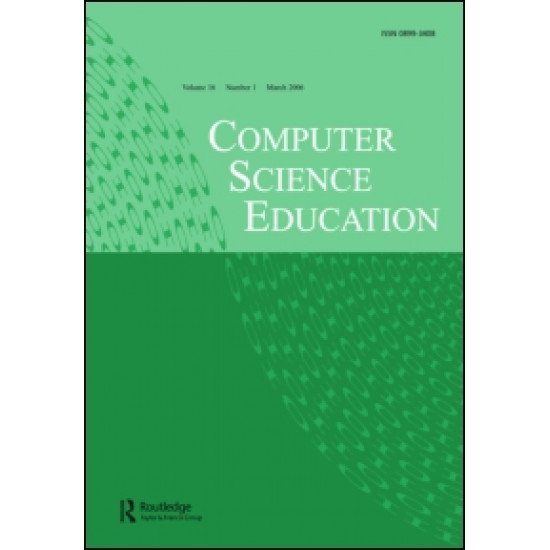
2017 CiteScore 1.76 - values from Scopus
Computer Science Education publishes high-quality papers with a specific focus on teaching and learning within the computing discipline. The journal seeks novel contributions that are accessible and of interest to researchers and practitioners alike. We invite work with learners of all ages and across both classroom and out-of-classroom learning contexts.
We welcome submissions that are situated in the computing education research literature and draw on diverse theories and research methods, including those that borrow from allied fields such as educational psychology, cognitive science, and the learning sciences. Papers may present work at various scales, from lab-based small-scale investigations to classroom interventions to national/international policy or implementation analyses.
The journal is not dedicated to any single research orientation. It welcomes a variety of methods, e.g., quantitative, qualitative, experimental, case-study, computational, or mixed-methods work, as long as these methods rigorously address the questions posed by authors.
Topics of General Interest to our Readers:
• Research on learning computer programming notations and tools, including visual, block-based, and other text-based coding environments used by novices
• Design-Based Research on the development and evaluation of computer-supported tools or educational technology for the teaching and learning of computing concepts
• Evidence-based pedagogical approaches for computer science in primary, secondary, and higher education contexts
• Efforts to broaden participation in computing at all levels
• Research on the social, cultural, and ethical dimensions of computing education
• Early childhood considerations around computing education content
• Research on computational thinking, including studies of "unplugged" and everyday forms of computational reasoning
• The role of computation in the broader Maker movement (i.e., computational making)
• Robotics, computing-enabled engineering, and other forms of physical computing
• Design-Based Implementation Research on scaling up state or national computing curricula
• CS pedagogical content knowledge and the training of both pre-service and in-service computing educators for learners of all ages
• Workplace studies of continuing education for adult computing professionals
• Coding schools, bootcamps, and other non-traditional learning environments
Types of Submissions:
Original manuscripts submitted to the journal are typically between 8,000 and 10,000 words excluding references, and can be made in one of two categories:
• Empirical Studies: Theoretically grounded and rigorously described empirical work applying appropriate research methods to explore specific research questions in a clearly articulated context.
• Review Articles: Work that synthesizes and interprets a body of existing literature relevant for the computing education field in order to uncover new insights or identify future research opportunities. Use of systematic or meta-analytic methods are not required, but should be clearly explained when used.
Peer Review Policy:
All research articles in this journal have undergone rigorous peer review, based on initial editor screening and anonymized refereeing by at least two anonymous referees.

















